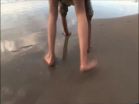(Press-News.org) From a cognitive perspective, aging is typically associated with decline. As we age, it may get harder to remember names and dates, and it may take us longer to come up with the right answer to a question.
But the news isn't all bad when it comes to cognitive aging, according to a set of three articles in the July 2014 issue of Perspectives in Psychological Science.
Plumbing the depths of the available scientific literature, the authors of the three articles show how several factors — including motivation and crystallized knowledge — can play important roles in supporting and maintaining cognitive function in the decades past middle age.
Motivation Matters
Lab data offer evidence of age-related declines in cognitive function, but many older adults appear to function quite well in their everyday lives. Psychological scientist Thomas Hess of North Carolina State University sets forth a motivational framework of "selective engagement" to explain this apparent contradiction.
If the cognitive cost of engaging in difficult tasks increases as we age, older adults may be less motivated to expend limited cognitive resources on difficult tasks or on tasks that are not personally relevant to them. This selectivity, Hess argues, may allow older adults to improve performance on the tasks they do choose to engage in, thereby helping to account for inconsistencies between lab-based and real-world data.
Prior Knowledge Brings Both Costs and Benefits
Episodic memory – memory for the events of our day-to-day lives – seems to decline with age, while memory for general knowledge does not. Researchers Sharda Umanath and Elizabeth Marsh of Duke University review evidence suggesting that older adults use prior knowledge to fill in gaps caused by failures of episodic memory, in ways that can both hurt and help overall cognitive performance. While reliance on prior knowledge can make it difficult to inhibit past information when learning new information, it can also make older adults more resistant to learning new erroneous information.
According to Umanath and Marsh, future research should focus on better understanding this compensatory mechanism and whether it can be harnessed in developing cognitive interventions and tools.
Older Adults Aren't Necessarily Besieged By Fraud
Popular writers and academics alike often argue that older adults, due to certain cognitive differences, are especially susceptible to consumer fraud. Psychological scientists Michael Ross, Igor Grossmann, and Emily Schryer of the University of Waterloo in Canada review the available data to examine whether incidences of consumer fraud are actually higher among older adults. While there isn't much research that directly answers this question, the research that does exist suggests that older adults may be less frequent victims than other age groups.
Ross, Grossmann, and Schryer find no evidence that older adults are actually more vulnerable to fraud, and they argue that anti-fraud policies should be aimed at protecting consumers of all ages.
INFORMATION:
For a copy of these articles or access to other Perspectives on Psychological Science articles, please contact Anna Mikulak at 202-293-9300 or amikulak@psychologicalscience.org.
Seeing the glass as half full: Taking a new look at cognition and aging
2014-07-16
ELSE PRESS RELEASES FROM THIS DATE:
Fair cake cutting gets its own algorithm
2014-07-16
The next time your children quibble about who gets to eat which part of a cake, call in some experts on the art of sharing. Mathematician Julius Barbanel of Union College, and political scientist Steven Brams of New York University, both in the US, published an algorithm in Springer's The Mathematical Intelligencer by which they show how to optimally share cake between two people efficiently, in equal pieces and in such a way that no one feels robbed.
The cut-and-choose method to share divisible goods has been regarded as fair and envy-free since Biblical times, when ...
Borneo deforested 30 percent over past 40 years
2014-07-16
Forest cover in Borneo may have declined by up to 30% over the past 40 years, according to a study published July 16, 2014 in the open-access journal PLOS ONE by David Gaveau from the Center for International Forestry Research, Indonesia, and colleagues.
The native forests of Borneo have been increasingly impacted by logging, fire, and conversion to plantations since the early 1970s. Borneo lacks island-wide forest clearance and logging documentation, making forest conservation planning difficult, especially for selectively logged forests that have high conservation potential ...
Whale shark fringe migration
2014-07-16
At the fringe of the whale shark range, the volcanic Azore islands may play an increasing role for the north Atlantic population as sea surface temperatures rise, according to a study published July 16, 2014 in the open-access journal PLOS ONE by Pedro Afonso from University of the Azores and colleagues.
Whale sharks prefer tropical waters in the range of 26-30º C, but studies have shown that this large filter-feeding shark seasonally aggregates at highly productive coastal sites, sometimes at the edge of their preferred water temperature range. Whale sharks have been ...
Indus river dolphin's declining range
2014-07-16
Removal of river water for irrigation and habitat fragmentation by irrigation dams were shown to be the principal factors contributing to the decline of the Indus river dolphin, according to a study published July 16, 2014 in the open-access journal PLOS ONE by Gill Braulik from the Wildlife Conservation Society and University of St. Andrews and colleagues.
Many freshwater marine mammals are endangered due to rapidly degrading habitat and conservation of these megafauna species depends on maintaining intact habitat. This study used historical range data and information ...
Transplanting gene into injured hearts creates biological pacemakers
2014-07-16
LOS ANGELES (STRICTLY EMBARGOED UNTIL 2 P.M. EDT ON JULY 16, 2014) – Cardiologists at the Cedars-Sinai Heart Institute have developed a minimally invasive gene transplant procedure that changes unspecialized heart cells into "biological pacemaker" cells that keep the heart steadily beating.
The laboratory animal research, published online and in today's print edition of the peer-reviewed journal Science Translational Medicine, is the result of a dozen years of research with the goal of developing biological treatments for patients with heart rhythm disorders who currently ...
Sexual harassment and assault are common on scientific field studies, survey indicates
2014-07-16
CHAMPAIGN, Ill. — A survey of 142 men and 516 women with experience in field studies in anthropology, archaeology, geology and other scientific disciplines reveals that many of them – particularly the younger ones – suffered or witnessed sexual harassment or sexual assault while at work in the field.
A majority of the survey respondents (64 percent) said they had experienced sexual harassment (inappropriate sexual remarks, comments about physical beauty or jokes about cognitive sex differences, for example). And more than 20 percent reported they had been the victims ...
Potassium supplements may increase survival in patients taking diuretics for heart failure
2014-07-16
PHILADELPHIA—Researchers from the Perelman School of Medicine at the University of Pennsylvania found that patients taking prescription potassium supplements together with loop diuretics for heart failure have better survival rates than patients taking diuretics without the potassium. Moreover, the degree of benefit increases with higher diuretic doses. The team, including senior author Sean Hennessy, PharmD, PhD, associate professor of epidemiology in Penn's Center for Clinical Epidemiology and Biostatistics (CCEB), report their findings in a study published online July ...
Preeclampsia may share cause with disorders such as Alzheimer's
2014-07-16
New research has identified a potential cause of and a better diagnostic method for preeclampsia, one of the most deadly and poorly understood pregnancy-related conditions in the world. The international team, led by researchers at Nationwide Children's Hospital, discovered that the disease may result from a collection of protein mishaps like those associated with Alzheimer's disease. Their findings, released today by Science Translational Medicine, have already led to an affordable, fast and accurate urine test that could revolutionize the diagnosis of preeclampsia in ...
Walking on all fours is not backward evolution, study shows
2014-07-16
VIDEO:
This video is a sample of UTS walking patterns.
Click here for more information.
AUSTIN, Texas -- Contradicting earlier claims, "The Family That Walks on All Fours," a group of quadrupedal humans made famous by a 2006 BBC documentary, have simply adapted to their inability to walk upright and do not represent an example of backward evolution, according to new research by Liza Shapiro, an anthropologist at The University of Texas at Austin.
Five siblings in the family, ...
New study links dredging to diseased corals
2014-07-16
In a world-first study published today, researchers say dredging activity near coral reefs can increase the frequency of diseases affecting corals.
"At dredging sites, we found more than twice as much coral disease than at our control sites," says the lead author of the study, Joe Pollock, a PhD candidate from the ARC Centre of Excellence for Coral Reef Studies (Coral CoE) at James Cook University (JCU) and the Australian Institute of Marine Science (AIMS).
"Corals require both light and food to survive," Pollock explains. "And unfortunately, dredging impacts corals ...


